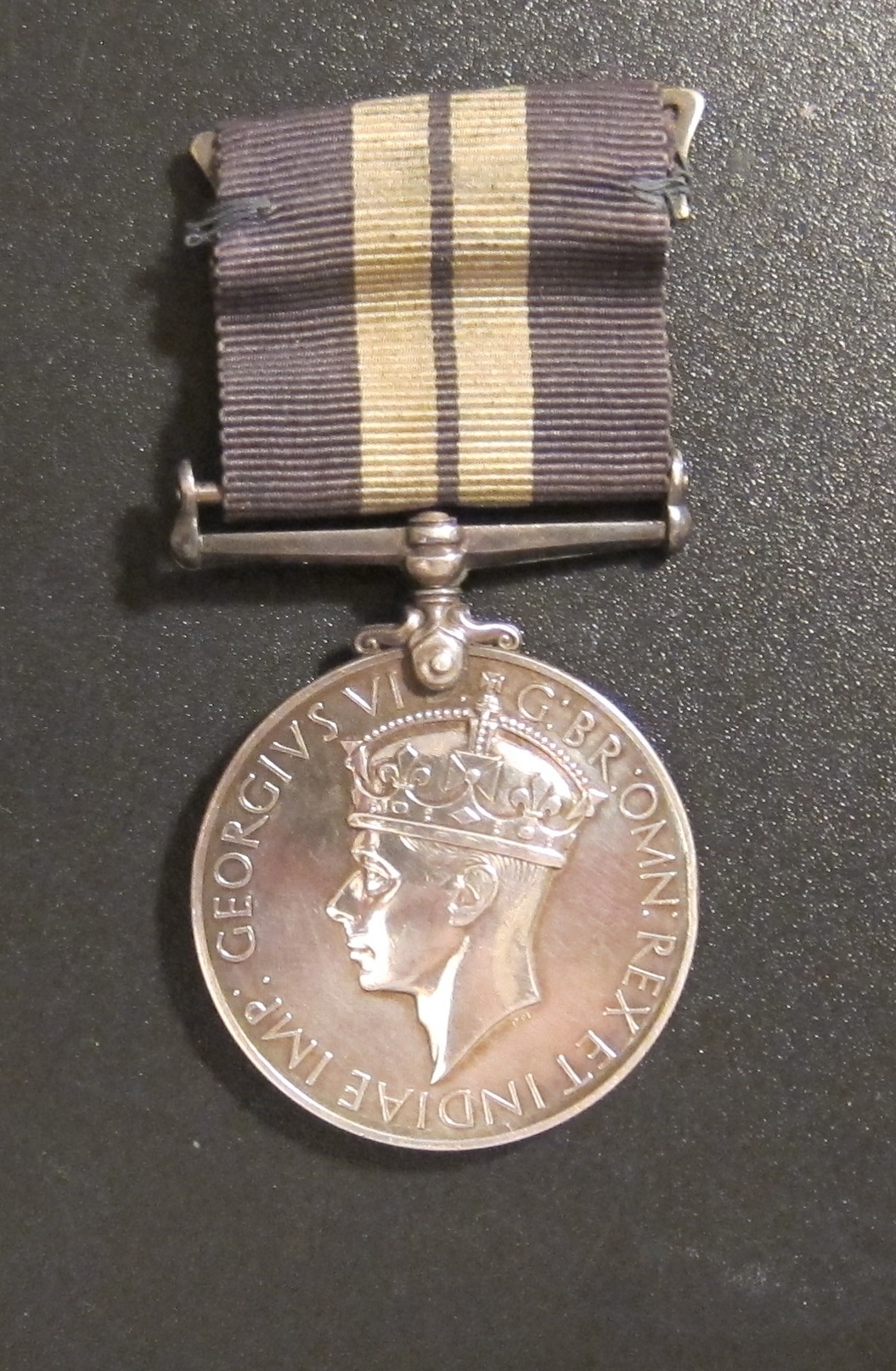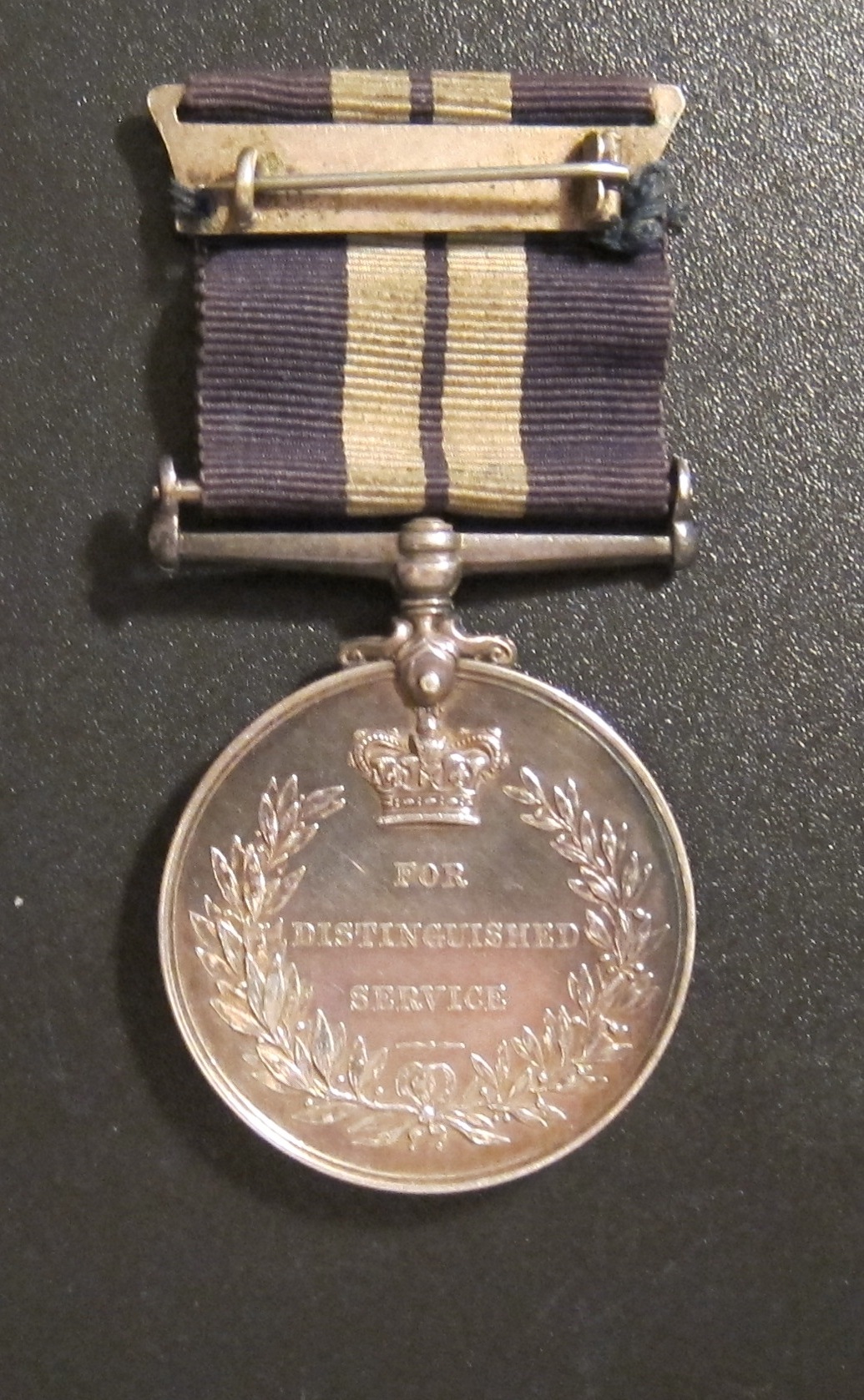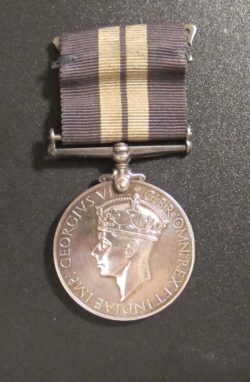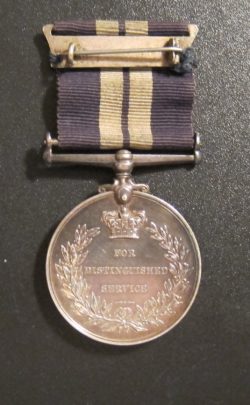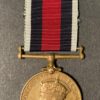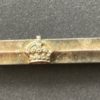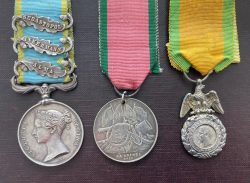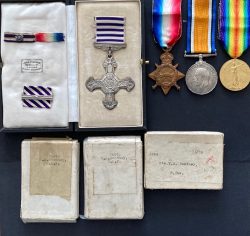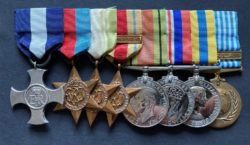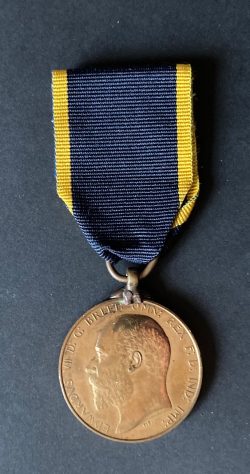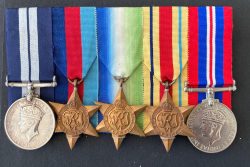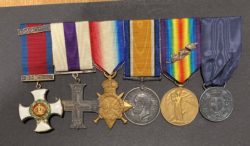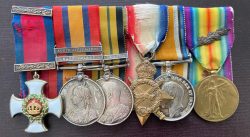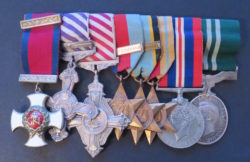A fine Distinguished Service Medal for the surface action between the armed merchant cruiser H.M.S. Alcantara and the German raider Thor in July 1940
£2,100.00
1 in stock
D.S.M. London Gazette 27 December 1940:
‘For good services in action against an enemy raider.’
The original recommendation states:
‘For outstandingly valuable work in dealing with the inrush of water into the engine-room through a shell hole in the ship’s side.’
Francis Hilberg, B. Swansea 1883, Joined the ship’s company of the Alcantara in December 1939, an armed merchant cruiser (ex Royal Mail Line) commanded by Captain J. J. P. Ingham, R.N., a Jutland D.S.O., with Lieutenant-Commander C. Fellows-Gordon, R.N., ‘a great friend’ of Franklin D. Roosevelt, the American President, as his second-in-command.
Served on the South American coast from July, 1940 and patrolled the “Pernambuco Watch”, with reason to believe that a German raider was due to arrive in the vicinity. On the morning of 27 July, the German raider Thor was spotted. The Thor ran up his battle ensign and opened fire, the beginning of a ferocious duel. Of the enemy raider’s first salvo, one shell burst over the Alcantara’s quarter deck, killing the trainer of the P4 6-inch gun and knocking out the ship’s W./T. aerials, thereby hazarding the ship’s entire gun-control system. Ingham signalled Harwood for assistance, just as another shell burst over the liner’s old tennis deck, causing considerable damage. Two more shells s from Thor’s third salvo hit the Alcantara’s unarmoured starboard side aft, tearing gaping holes, while a third burst just four feet above the waterline causing damage to the orlop deck.
From ‘Armed Merchant Cruisers, by Kenneth Poolman ‘Shrapnel and anti-personnel shells with time-and-percussion fuses were bursting in a continuous fusillade of sharp explosions overhead or on impact, sending jagged metal shards whistling through the air close to the unprotected heads of the men on deck, including the men at the guns, which had no shields.
One shell hit the old Promenade Deck just to starboard of the funnel, damaging the deck, bulkheads and alleyways and the wardroom, slicing electrical leads and engine room voice-pipes, starting a fire which was energetically doused by the Midship Fire Party. Its companion tore a four-foot hole in the funnel, inner funnel and the waste steam pipes inside. Seven boats and three life rafts were holed, the starboard cutter wrecked. All the loud racket of the shell bursts, coupled with the ship’s own guns firing, made it difficult for the sight-setters to hear orders from the Transmitting Station over their headphones, and the fall of shot soon indicated that the sights at the different guns had got out of step with one another, preventing salvo firing. The order “Check” went round. Firing was stopped while range and corrected deflection were passed to the guns, then re-opened. This had to be done repeatedly’
Meanwhile, a hit abreast the fore end of the Alcantara’s engine-room caused much concern, the resultant damage reducing her speed. Luckily, however, with her guns now firing more accurately, she obtained a vital hit on the Thor, ‘a bright flash’ being seen abreast the raider’s foremast – two of her 6-inch shells had found their mark, causing considerable damage and casualties. Even so, the duel continued apace, until the Thor laid down a thick smoke-screen and opened the range, but not before a parting enemy projectile blew away part of the starboard side of the Alcantara’s bridge, causing four more casualties. For a moment it seemed the action had reached its conclusion, the Alcantara by now virtually stopped in the water. But to Ingham’s horror, the enemy raider suddenly burst through the smoke-screen, once more closing her adversary with three-gun salvoes. The Alcantara, now with a distinct list to port, replied in kind, and finally compelled the Thor to flee the scene for good.
The severely damaged Alcantara reached Rio de Janeiro under her own steam on 1 August 1940, where she was permitted to carry out vital repairs before returning to sea, while the Thor went on to become the most successful commerce raider of the War, claiming 22 victims totalling 150,000 tons – Kapitan Kahler was awarded the Knight’s Cross.
